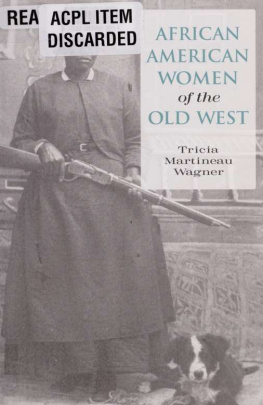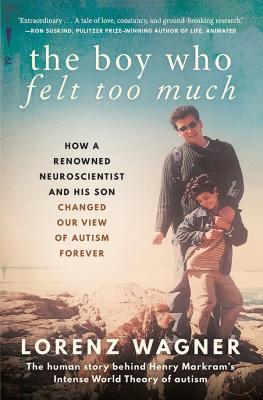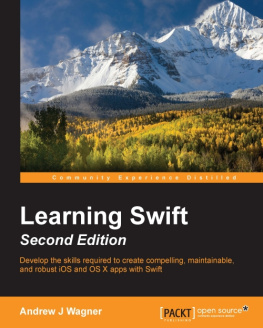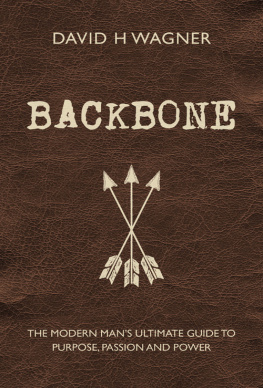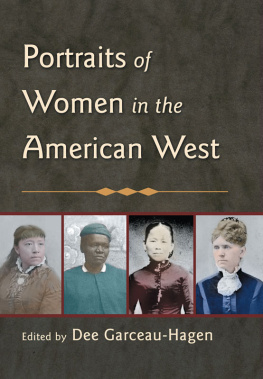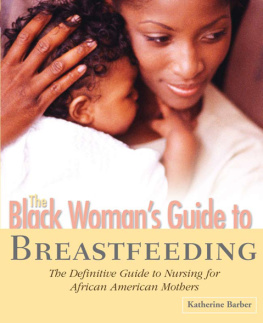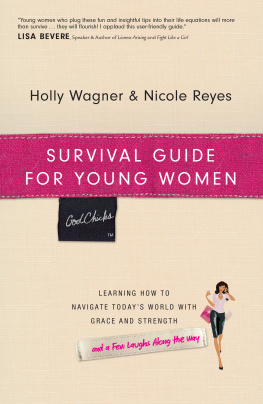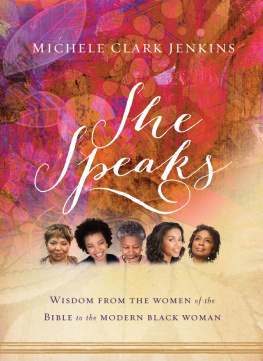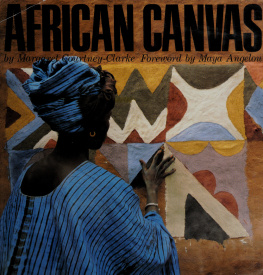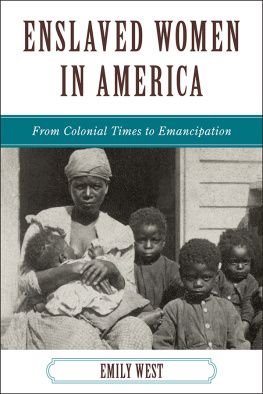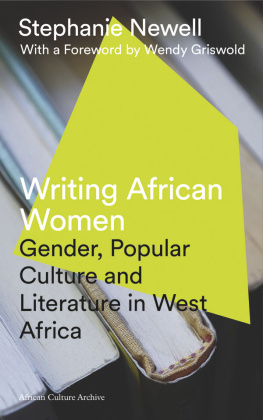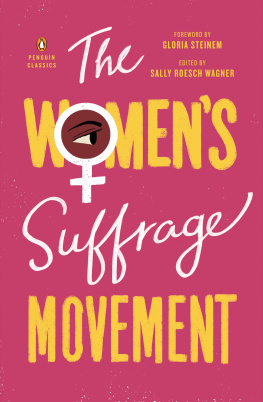Wagner - African American women of the Old West
Here you can read online Wagner - African American women of the Old West full text of the book (entire story) in english for free. Download pdf and epub, get meaning, cover and reviews about this ebook. year: 2007, publisher: Guilford, Conn. : TwoDot, an imprint of The Globe Pequot Press, genre: Non-fiction. Description of the work, (preface) as well as reviews are available. Best literature library LitArk.com created for fans of good reading and offers a wide selection of genres:
Romance novel
Science fiction
Adventure
Detective
Science
History
Home and family
Prose
Art
Politics
Computer
Non-fiction
Religion
Business
Children
Humor
Choose a favorite category and find really read worthwhile books. Enjoy immersion in the world of imagination, feel the emotions of the characters or learn something new for yourself, make an fascinating discovery.
- Book:African American women of the Old West
- Author:
- Publisher:Guilford, Conn. : TwoDot, an imprint of The Globe Pequot Press
- Genre:
- Year:2007
- Rating:4 / 5
- Favourites:Add to favourites
- Your mark:
- 80
- 1
- 2
- 3
- 4
- 5
African American women of the Old West: summary, description and annotation
We offer to read an annotation, description, summary or preface (depends on what the author of the book "African American women of the Old West" wrote himself). If you haven't found the necessary information about the book — write in the comments, we will try to find it.
African American women of the Old West — read online for free the complete book (whole text) full work
Below is the text of the book, divided by pages. System saving the place of the last page read, allows you to conveniently read the book "African American women of the Old West" online for free, without having to search again every time where you left off. Put a bookmark, and you can go to the page where you finished reading at any time.
Font size:
Interval:
Bookmark:

This book made available by the Internet Archive.





For my father, Walter F. Martineau Jr., the greatest of storytellers, thank you for showing me the way.
The woman udio works on and on amid privations not only for herself but for her little ones and yet always sees victory ahead is the woman that not only makes husbands men in the true sense of the word , but ivho makes the men and women of tomorrow.
H. R. Cay ton


Acknowledgments

T he ten remarkable women in this book
led lives that are worth remembering. Their stories were buried in obscure sources and took a great deal of work to unearth. I gratefully acknowledge the following people for their assistance in the writing of this book:
My editor, Erin E. Turner, at The Globe Pequot Press, whose expertise, professionalism, and encouragement helped turn my manuscript into a book. And to Kaleena Cote, whose guidance saw the manuscript through its final stages. Thank you.
Esther Hall Mumford and Dr. Quintard Taylor, historians and authors, for pointing me in the right direction when I began my research.
Beth R. Olsen, historian, researcher, and dear friend, for all her research efforts; especially for uncovering a plethora of material on Jane Manning James and for her clarification of LDS terminology. Her support and inspiration are immeasurable.
Sister Kathleen Padden, OSU Toledo and the Archives at St. Ursula Convent Toledo, Ohio, for her generous assistance with
research materials on Mary Fields. Her love shines through as
$
brightly now as it did when she was my high school principal at St. Ursula Academy in Toledo.
Irene Mahoney, OSU College of New Rochelle, for willingly sharing her research on Mary Fields and Mother Amadeus in the writing of her book Lady Blackrobes.
Francis Xavier Porter, OSU Ursuline Archives, Great Falls, Montana, for searching out material on Mary Fields.
Acknowledgments
Anne-Marie Rachman, Michigan State University Library, Special Collections, whose excellence in research enabled me to write the chapter on Abby Fisher.
Erika Schmidt, reference/cataloging librarian, Mechanics Institute Library, San Francisco, for her research assistance with Abby Fisher.
Wallace De Young and Beverly K. Smith of Wells Fargo, for their assistance with the research on Mary Fields. And Dr. Andy Anderson, Wells Fargo chief historian, for sharing his online genealogy research information.
Jacqueline E. A. Lawson, Black Heritage Society 7 of Washington State Inc., for setting me up with several researchers and contacts.
Susan Bragg, PhD, History Department, University of Washington, for her research assistance and direction.
Betty Marvin, Oakland Cultural Heritage Survey, Oakland, California, City Planning Department, for her research assistance with Elizabeth Thorn Scott Flood.
Peter Berg, assistant director for special collections, Michigan State University, for his research assistance with Abby Fisher.
Dr. Louis H. Bronson, for his research assistance with Elizabeth Thorn Scott Flood and the history of St..Andrews AME Church, Sacramento.
Veronica Lee, research librarian for the African-American Museum and Library in Oakland (AAMLO), for her research assistance with Elizabeth Thorn Scott Flood, Biddy Mason, and Mary Ellen Pleasant.
Ross Sutherland, archivist at the Marion County Historical Society 7 , Salem, Oregon, for his research assistance with Mary Jane Holmes Shipley Drake.
Acknoiuledgments
Ellen M. Shea, head of public sendees, Schlesinger Library on the History of Women in America, Radcliffe Institute for Advanced Study, Harvard University, for the direction offered in researching Abby Fisher.
Rev. Dr. Richard Evans of Colorado, for his research assistance with Clara Brown.
Tom Thompson, coordinator of the Acadia Ranch Museum of the Oracle Historical Society, Arizona, for his research assistance with Annie Neal.
William Nation, research librarian at the Morrison Branch of the Public Library of Charlotte 8c Mecklenburg County, for his instruction on researching online resources.
Peter Jareo, library supervisor of the Carmel Branch of the Public Library of Charlotte 8c Mecklenburg County and his staff, for cheerfully processing the seemingly endless requests for interlibrary loan materials.
The friends and members of my book club, who kindly assisted with retrieving a multitude of books for my research: Carolyn Bremer, Betsy Day, Pat Dorcy, Susie Hensler, Amy Norman, Sherry Williams, and Beth Wright.
Walter Martineau and Lois Holmes, for diligently collecting antiques and artifacts for my school presentations and for their encouragement in the writing of this book.
Joan Rush, ny research assistant and friend, whose sense of humor keeps me going.
My husband and best friend, Mar k, who is always there for me, and our children, Kelsey and Mitch, for complimenting me, saying, For Mom and her book. All my love is yours.
xi

Introduction
'W?
<\juO< W
G enerations of Americans have read history
books describing the exploits of the menalmost always the white menwho settled the West. What about the women? They were there, too. A national history written solely about the contributions of women that purported to tell the whole story while excluding the accomplishments of men would of course be ludicrous. Yet for the most part, historians have ignored the contributions and achievements women have made, especially women of color.
The brave pioneers who went ahead to make life easier for those who followed in their footsteps were not always male, and they were not always white. It took a combined effort to make a life on the frontier. A lot of sweat equity" went into building a house, making a living, and creating a community that had some semblance of civility. Early towns would not grow until schools, churches, and other organizations were established to foster a sense of community, and those were often started by women.
That women have been underrepresented in our nations history is an understatement. That black women have been doubly overlooked for so long is a shame. African American women were on the western frontier, albeit in far smaller numbers than most other groups, but they were there. Unfortunately, very few people thought their lives, their struggles, and their accomplishments were important enough to record. The lives of African American women and their achievements must be reconstructed from public records such as marriage, birth, and death certificates,
Font size:
Interval:
Bookmark:
Similar books «African American women of the Old West»
Look at similar books to African American women of the Old West. We have selected literature similar in name and meaning in the hope of providing readers with more options to find new, interesting, not yet read works.
Discussion, reviews of the book African American women of the Old West and just readers' own opinions. Leave your comments, write what you think about the work, its meaning or the main characters. Specify what exactly you liked and what you didn't like, and why you think so.

